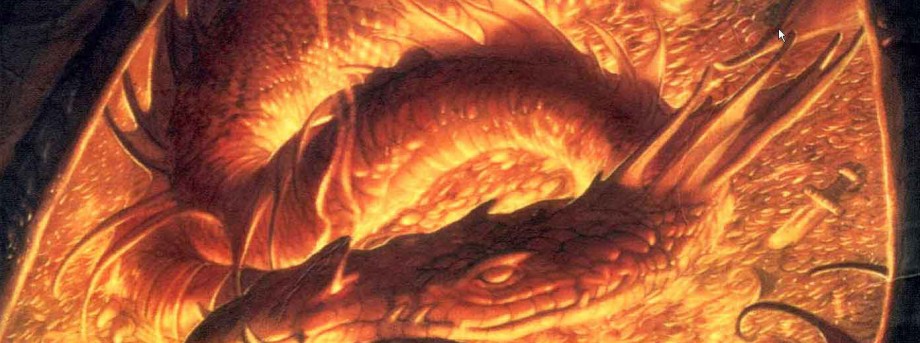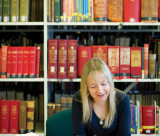
Bilbo fulfils a spiritual need
January 18th, 2013
Audiences enjoying the latest Warner Bros fantasy blockbuster, The Hobbit, may be fulfilling deeper needs than pure entertainment.
Dr Alison Milbank, Associate Professor in the Department of Theology and Religious Studies, says we should look beyond the impact of breathtakingly realistic CGI (computer-generated imagery) in explaining the popularity of such fantasy films as Harry Potter, Lord of the Rings and now The Hobbit.
Dr Milbank, a world authority on the literature and theology of JRR Tolkien, said: ”In my view there are deeper human needs which are nourished by the fantastic in a period of increasing social inequality and the globalising reach of consumerism and capitalism.”
She discusses the resurgence in popularity of the fantasy genre in a new video interview coinciding with the release of the The Hobbit: An Unexpected Journey, the first in a film trilogy from director Peter Jackson based on the Tolkien novel.
Dr Milbank adds: “The imagining of a fantasy world in literature, visual arts and gaming, allows not just simple escapism but the possibility of a different way of conceiving reality, in which objects are ‘enchanted’: in which they are not dead commodities but full of presence and meaning.
“It’s absolutely true, I think, that fantasy fills a spiritual hole, that where organised religion is becoming less part of the cultural imaginary, people need it…it is ironic that they look to CS Lewis, Tolkien and even JK Rowling, because they are looking to Christian writers who are offering imaginative conceptions of a whole world, not just a narrow world of religious doctrines, but a world that is suffused with meaning.
“Tolkien published The Hobbit in 1937 as a children’s story and it is less dark in its conception of the power of objects to entrap and pervert human flourishing than The Lord of the Rings, but it has a journey that takes a modern suburbanite, Bilbo the comfortable hobbit-hole owner, back into a more ancient world of pledge, riddle and gift-exchange, which Tolkien derives from Norse culture.
“Tolkien deliberately left religious practice out of his fantasy writings but in order to write a fantasy novel you have in a sense to commit to metaphysics. You have to create a world with its own consistency in terms of its landscape and inhabitants, politics and ethics. Tolkien is particularly interested in these metaphysical questions. In this way he liberates real things from our own world, like trees, mountains and water, to have fantastical lives of their own. But it’s the fantasy of the real, not the alien.”
Dr Milbank has published extensively on Tolkien and other writers including her 2009 book, Chesterton and Tolkien as Theologians: The Fantasy of the Real.
Dr Milbank’s Tolkien video is available at: http://tiny.cc/UofNTolkein.
Comments are closed.
Other Features

Baptism of fire for WW1 curator
Stories from the First World War are being revealed for the first time at a University […]


